+39 0669887260 | info@wucwo.org | Contact us
Raise Awareness of Conflict-Related Sexual Violence
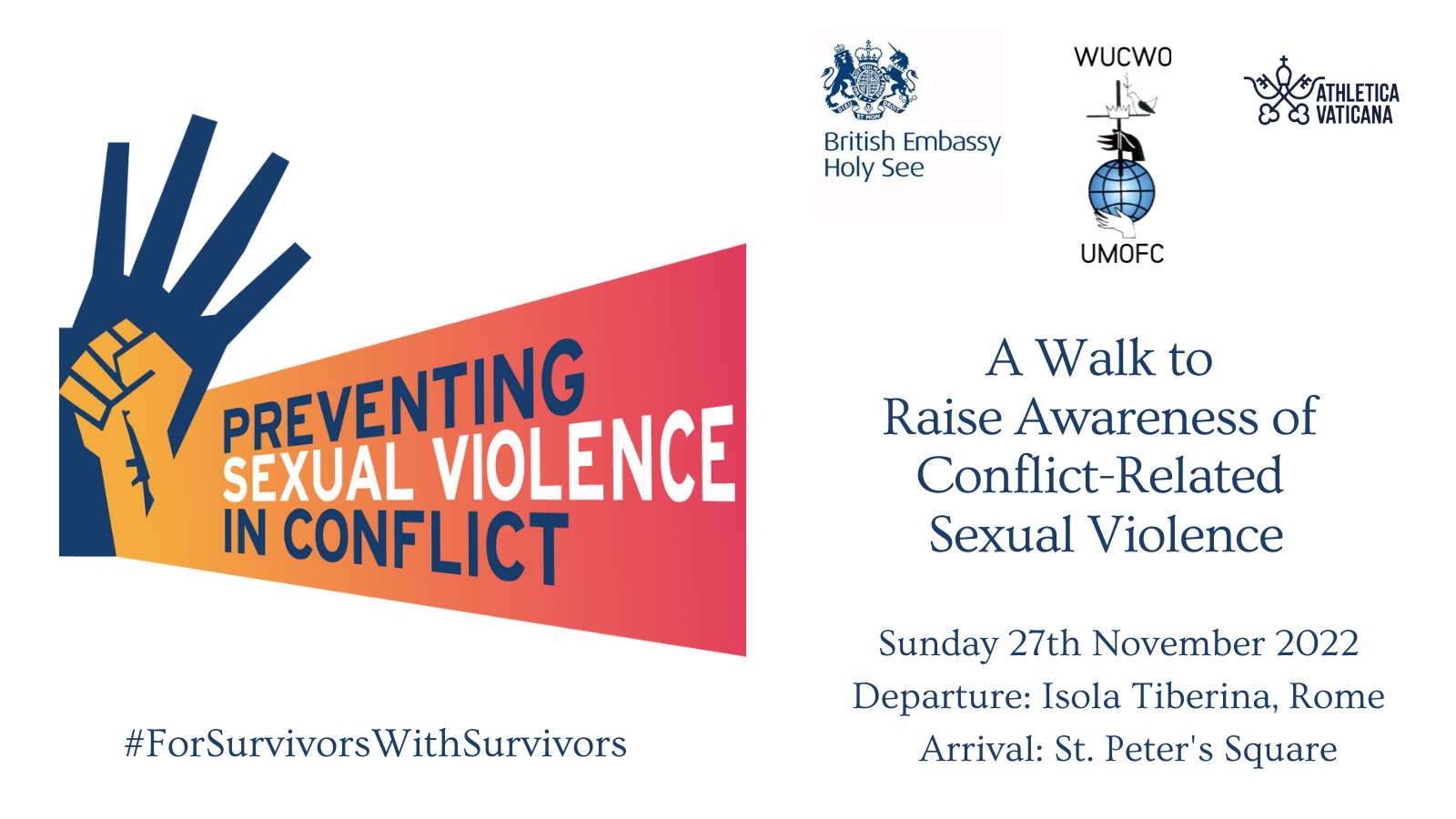
On the International Day for the Elimination of Violence against Women, 25th of November 2022, WUCWO intensifies awareness regarding gender violence as a weapon of war.
Together with the British Embassy to the Holy See and with the support of the Vatican Sports Team, Athletica Vaticana, we organised a Walk to Raise Awareness of Conflict-Related Sexual Violence on Sunday 27th November 2022 from 10 am to 12 noon in Rome.
III MEETING WITH WOMEN FROM THE MIDDLE EAST AND THE MEDITERRANEAN IN GREECE
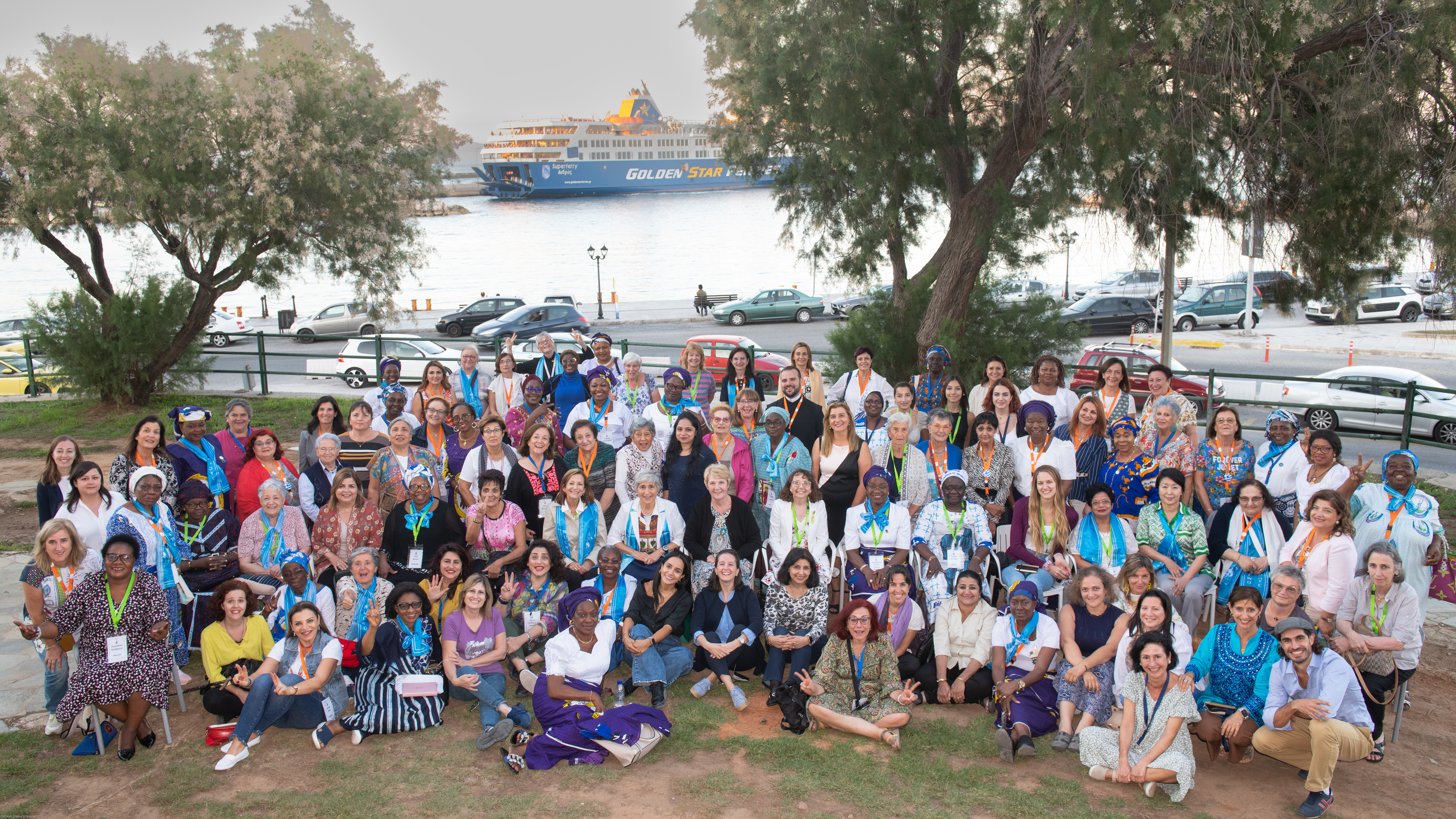
Photograph courtesy of Don MacKinnon
From 7 to 10 October 2022, under the title “Women Builders of Peace in a Church which Goes Forth” WUCWO organised the third meeting with Women from the Middle East and the Mediterranean, in order to make known the reality of women in this Region and the work that some organisations are doing. More than 120 women from 33 countries participated.
World Day for Grandparents and the Elderly 2022
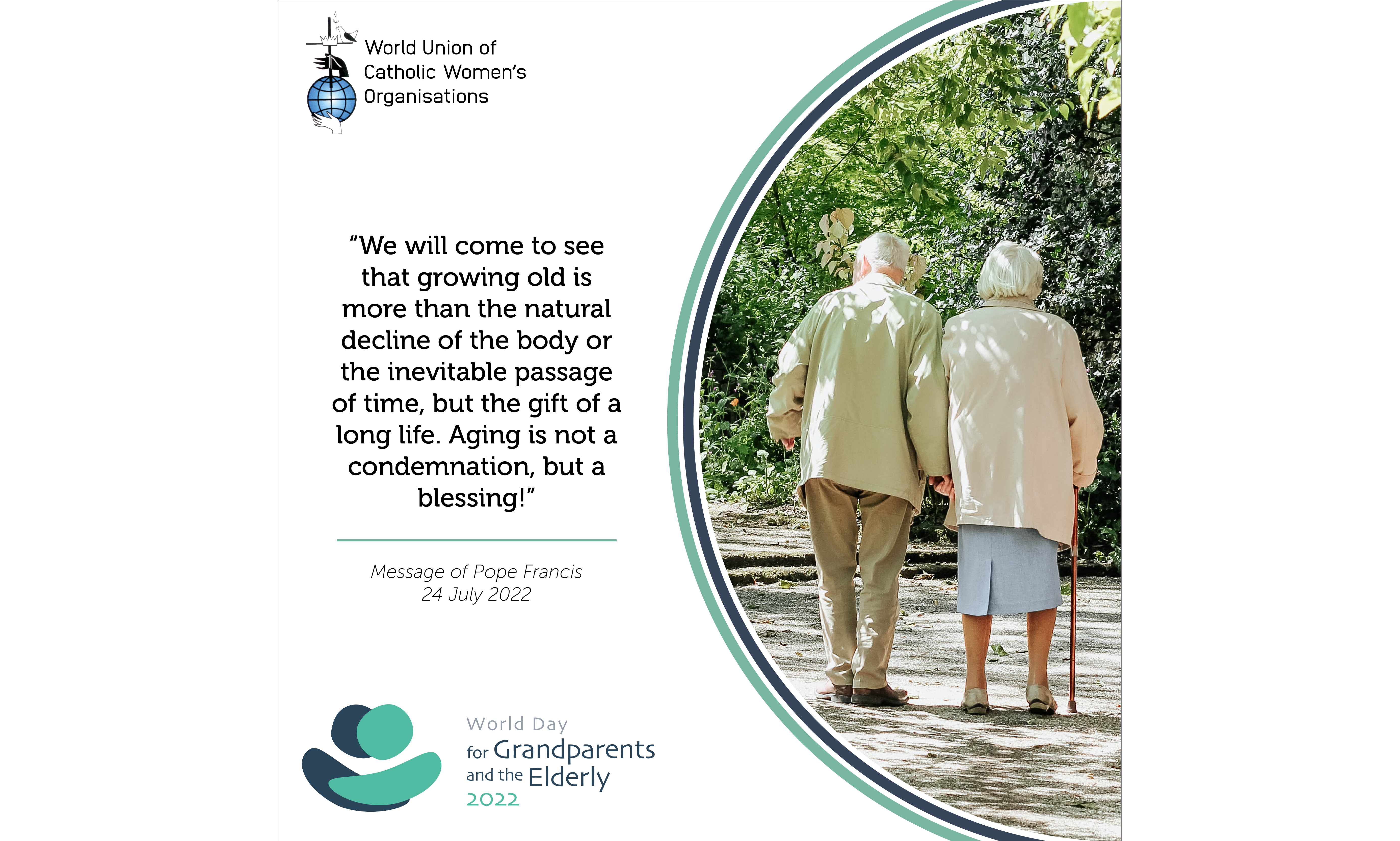
On Sunday, July 24, 2022, the Second World Day for Grandparents and the Elderly will be celebrated throughout the universal Church. The theme chosen by the Holy Father for the occasion is "In old age they will still bear fruit" (Psalm 92:15) and intends to emphasize how grandparents and the elderly are a value and a gift both for society and for ecclesial communities.
WUCWO's participation at FAO
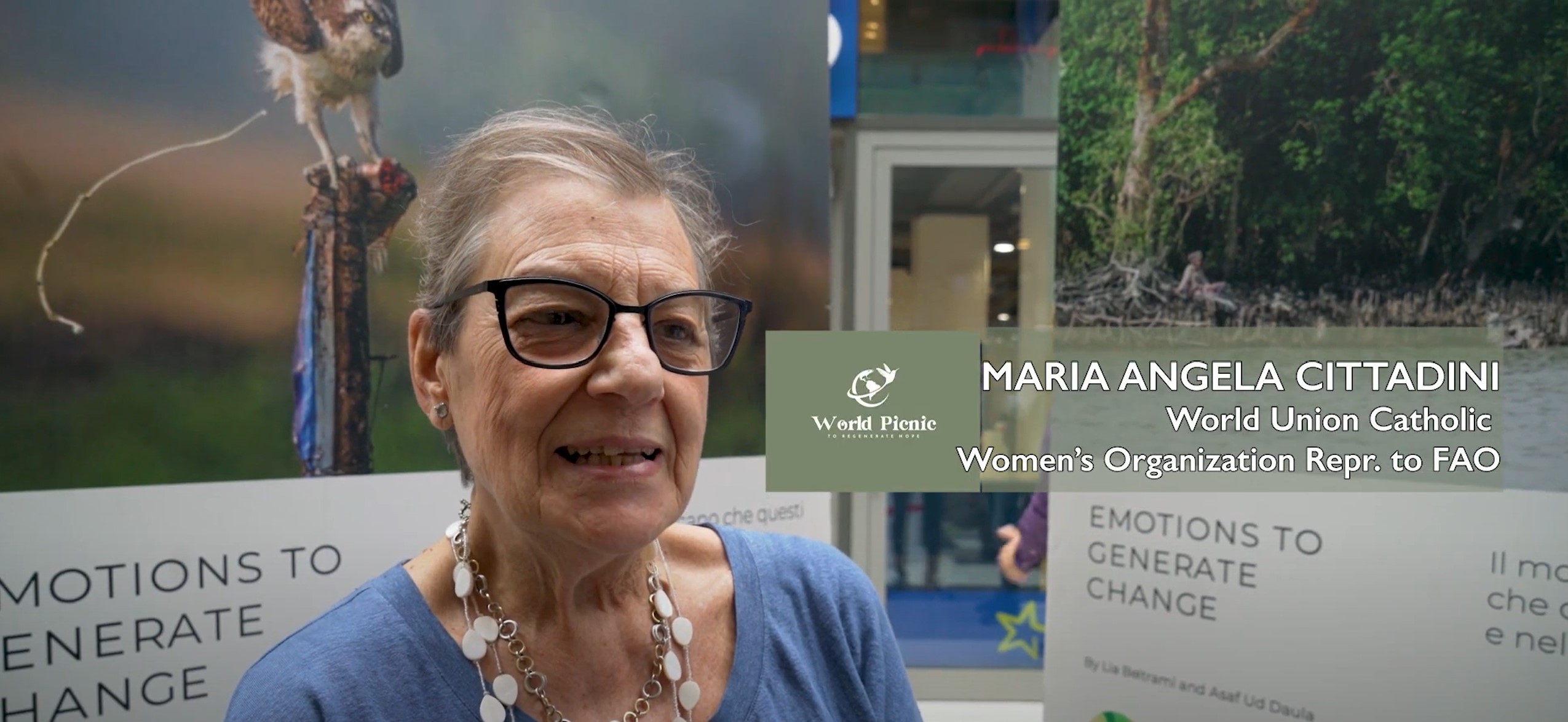 WUCWO's participation at the Group of International NGOs to FAO in Rome.
WUCWO's participation at the Group of International NGOs to FAO in Rome.
WUCWO President appointed by the Pope
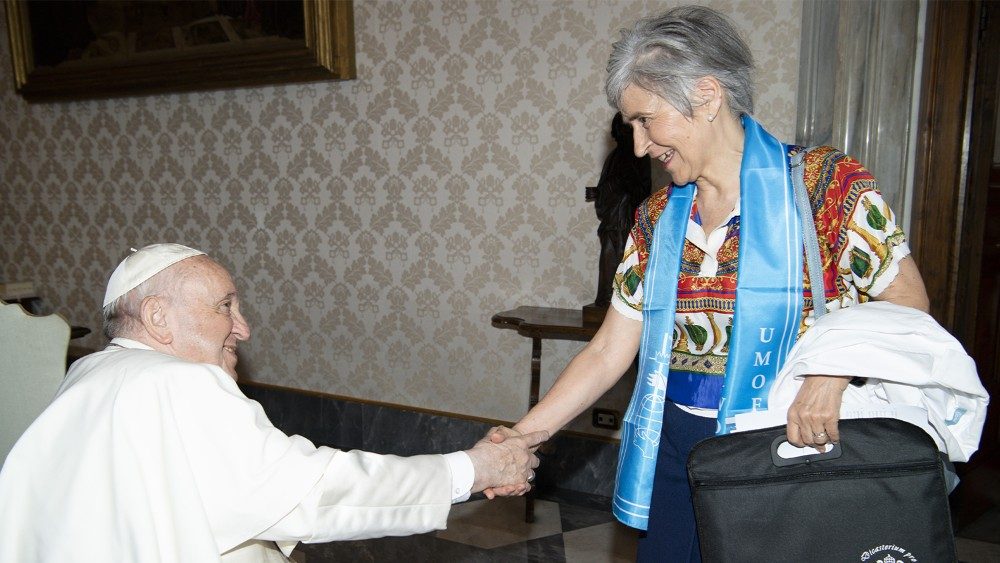
©VaticanNews
On the 13th of July 2022, Maria Lía Zervino, Servidora, President General of the World Union of Catholic Women's Organisations (WUCWO) was appointed, by Pope Francis, to the Dicastery for Bishops together with other two women.
For the first time, three women will serve, by the will of the Pope, in the process of identifying and electing the new diocesan bishops.
WUCWO's Executive meets with the Pope
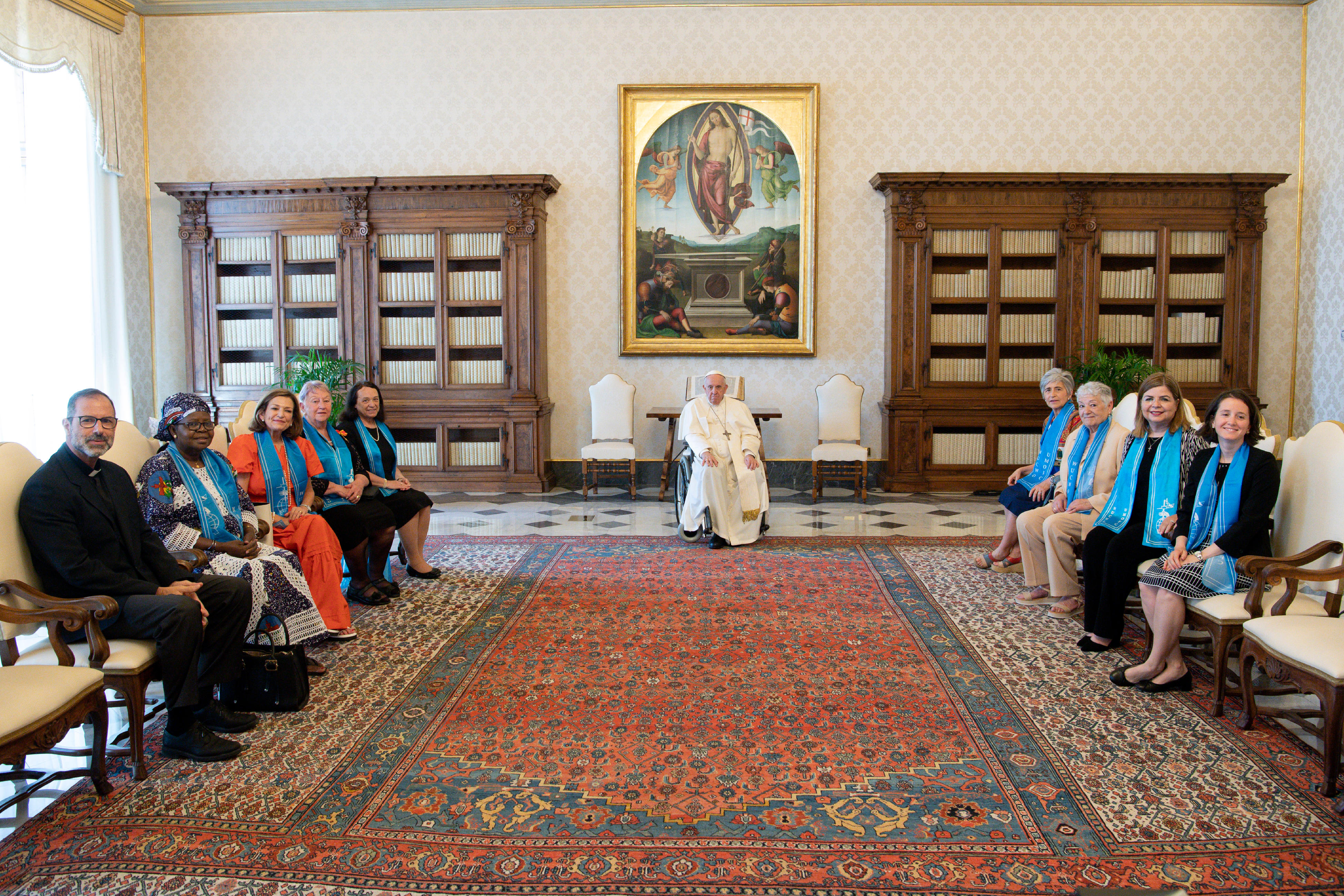
© Photo : Vatican Media
On 11 June 2022, all the members of the WUCWO Executive Committee had the extraordinary opportunity to meet the Holy Father during a private audience. He welcomed happily the news of the creation of the World Women’s Observatory, which has already succeeded in listening to and giving visibility to women in Latin America and the Caribbean and is starting its work in Africa.
Webinar "Women, crisis and resilience"
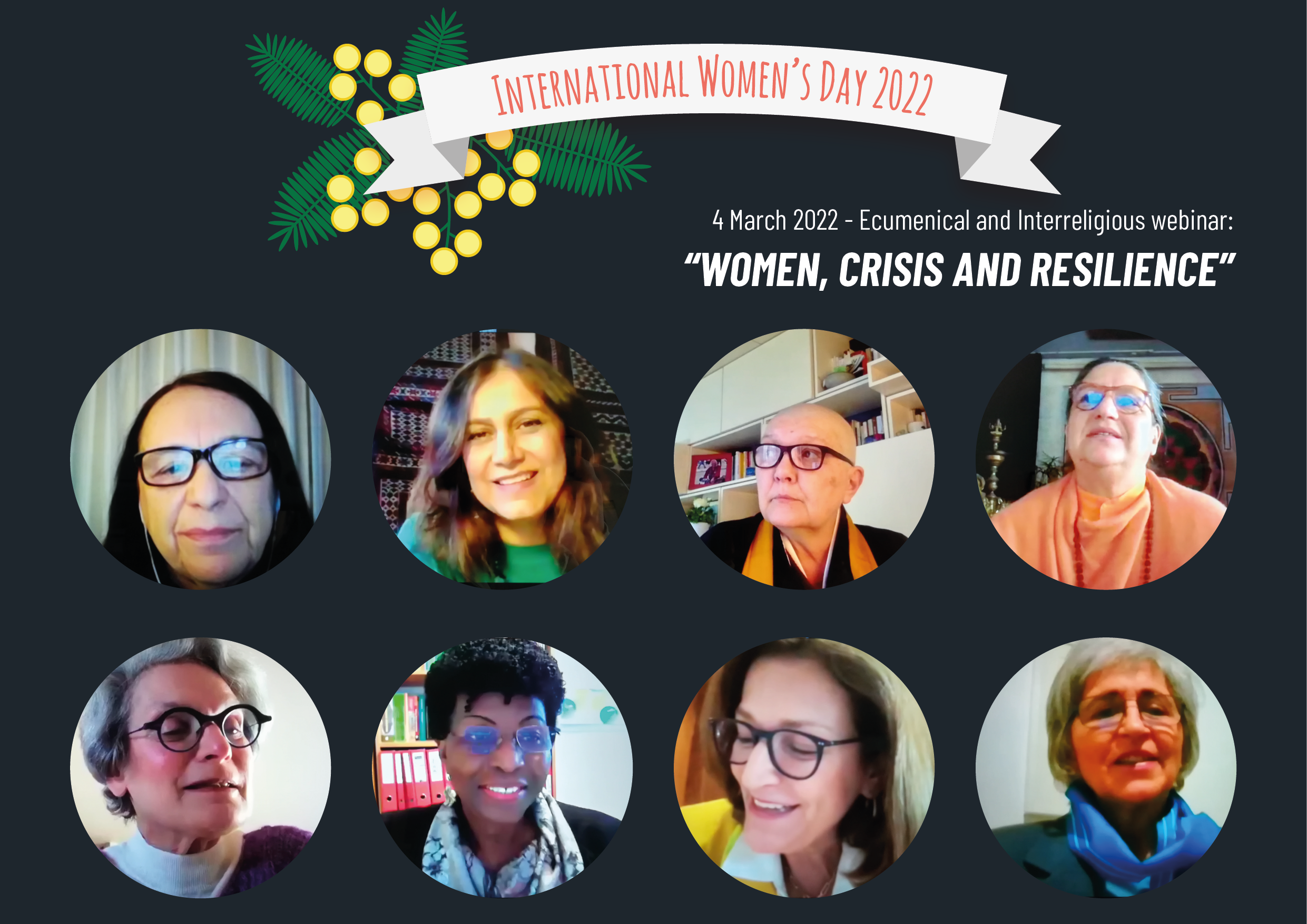 Women, crisis and resilience
Women, crisis and resilience
Webinar to celebrate International Women’s Day
Friday 4th March 2022, 3 pm – 5 pm CET
On March 4, 2022, the World Union of Catholic Women's Organizations (UMOFC / WUCWO) in collaboration with the Pontifical Council for Interreligious Dialogue (PCID) celebrated International Women's Day with an international conference entitled Women, crisis and resilience which saw the participation of about 400 people connected from 70 countries.
Ukraine needs our intercession
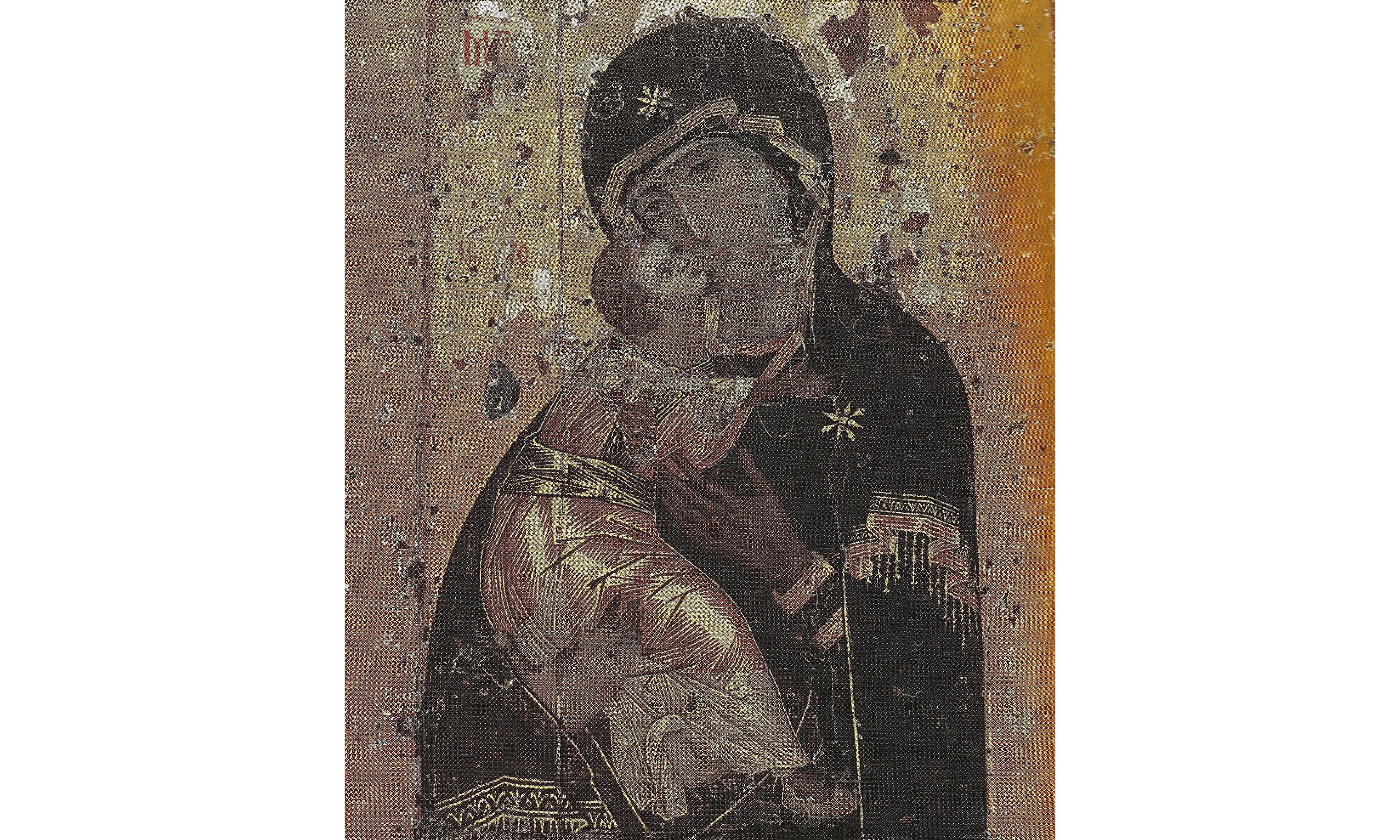
UKRAINE NEEDS OUR INTERCESSION.
The war has begun. Let us ask the Queen of Peace, in her invocation as Our Lady of Vladimir, to protect the inhabitants of this suffering nation and to stop the violence of war. Let us join the feelings and sufferings of our sisters of the Ukrainian Catholic Women's League of Canada.
"Women, crisis and resilience" - 4 March 2022
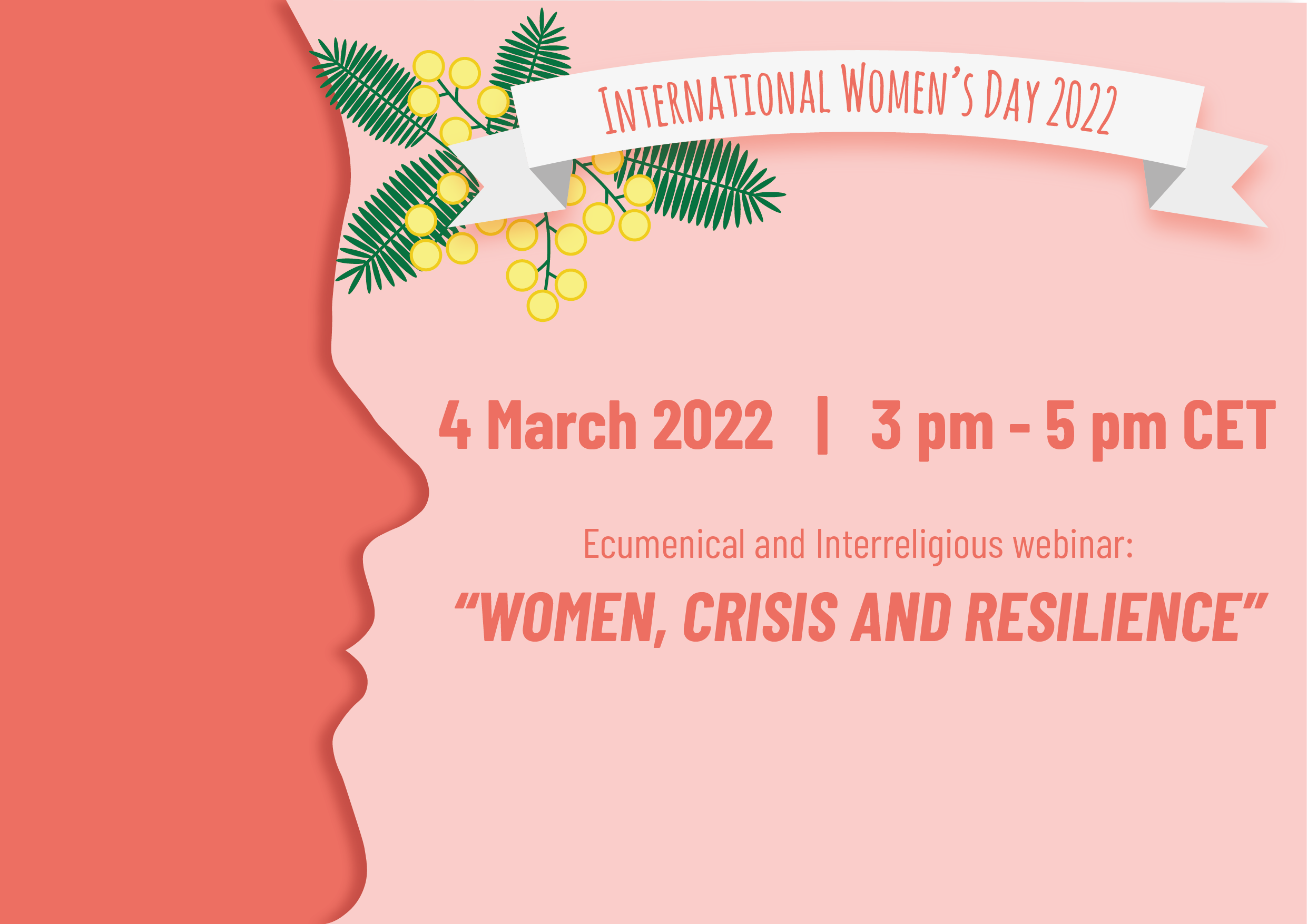
“Women, crisis and resilience”
International Women’s Day
March 4, 2022, from 3 pm to 5 pm (CET)
International Women's Day will be celebrated by the World Union of Catholic Women's Organisations (WUCWO) in collaboration with the Pontifical Council for Interreligious Dialogue, in an ecumenical and interreligious webinar, with the participation of women leaders from various faiths and continents, under the patronage of embassies to the Holy See and in dialogue with representatives of friendly international organisations.
Happy birthday Pope Francis!
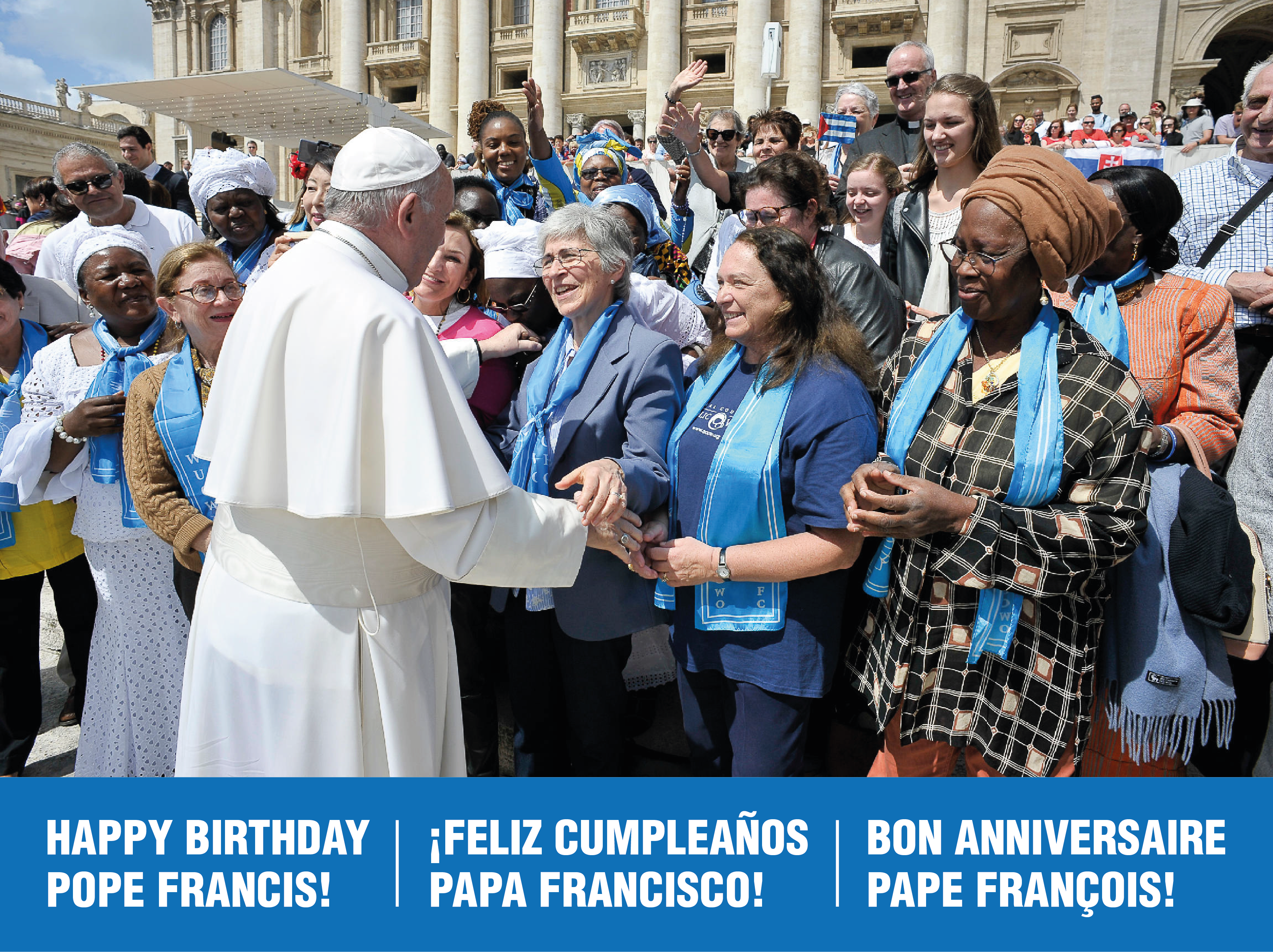
Happy birthday Holy Father!
ERRADICATING CHILD LABOUR
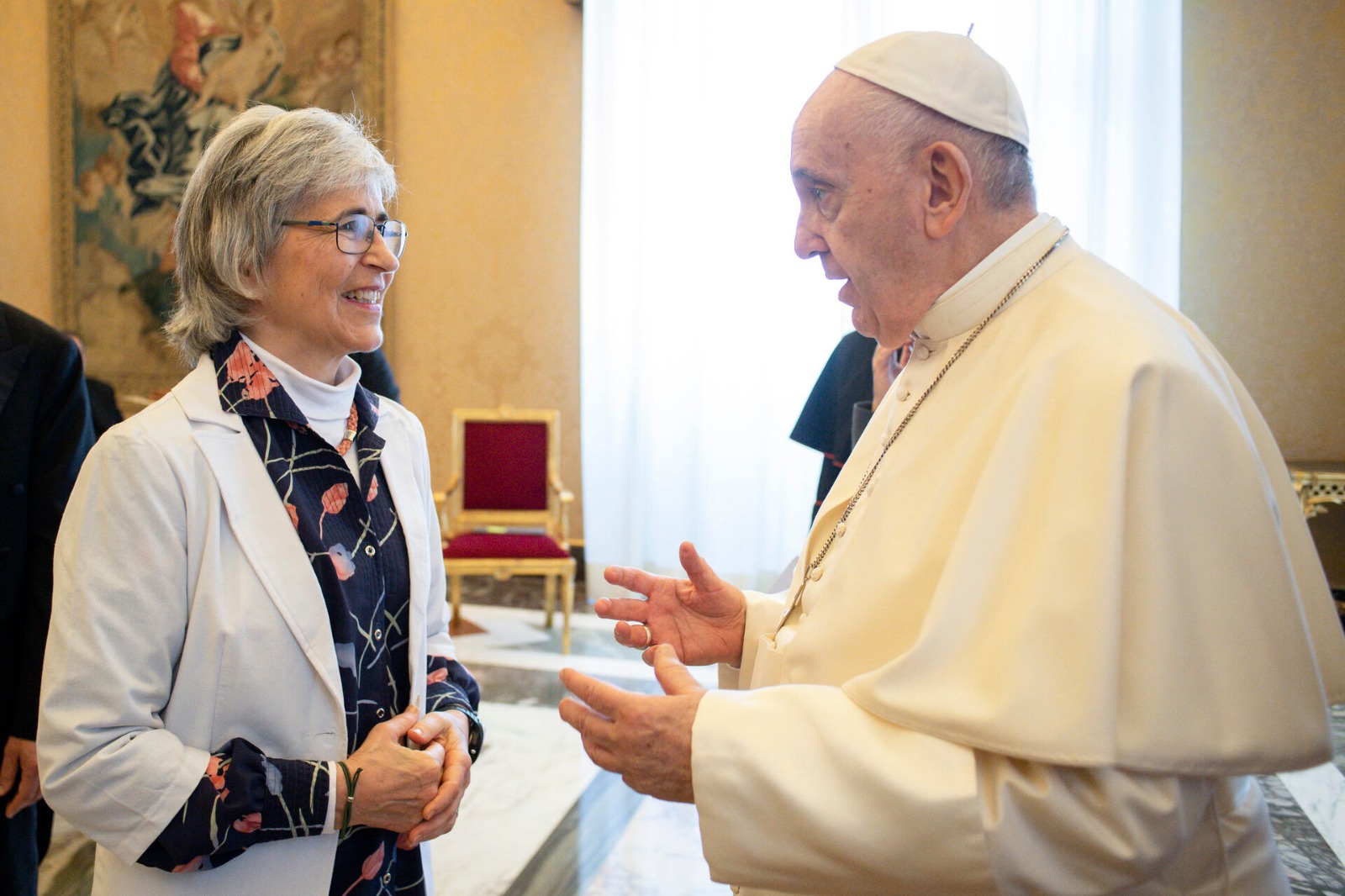
The Holy Father gave the opening address and received the participants of the international conference “Eradicating Child Labour, Building a Better Future”, promoted by the Vatican Commission COVID-19 of the Dicastery for Promoting Integral Human Development, in collaboration with the Permanent Mission of the Holy See to the FAO. The format was hybrid and María Lía Zervino was present in the conference hall on 19 November.
International Day for the Elimination of Violence against Women 2021
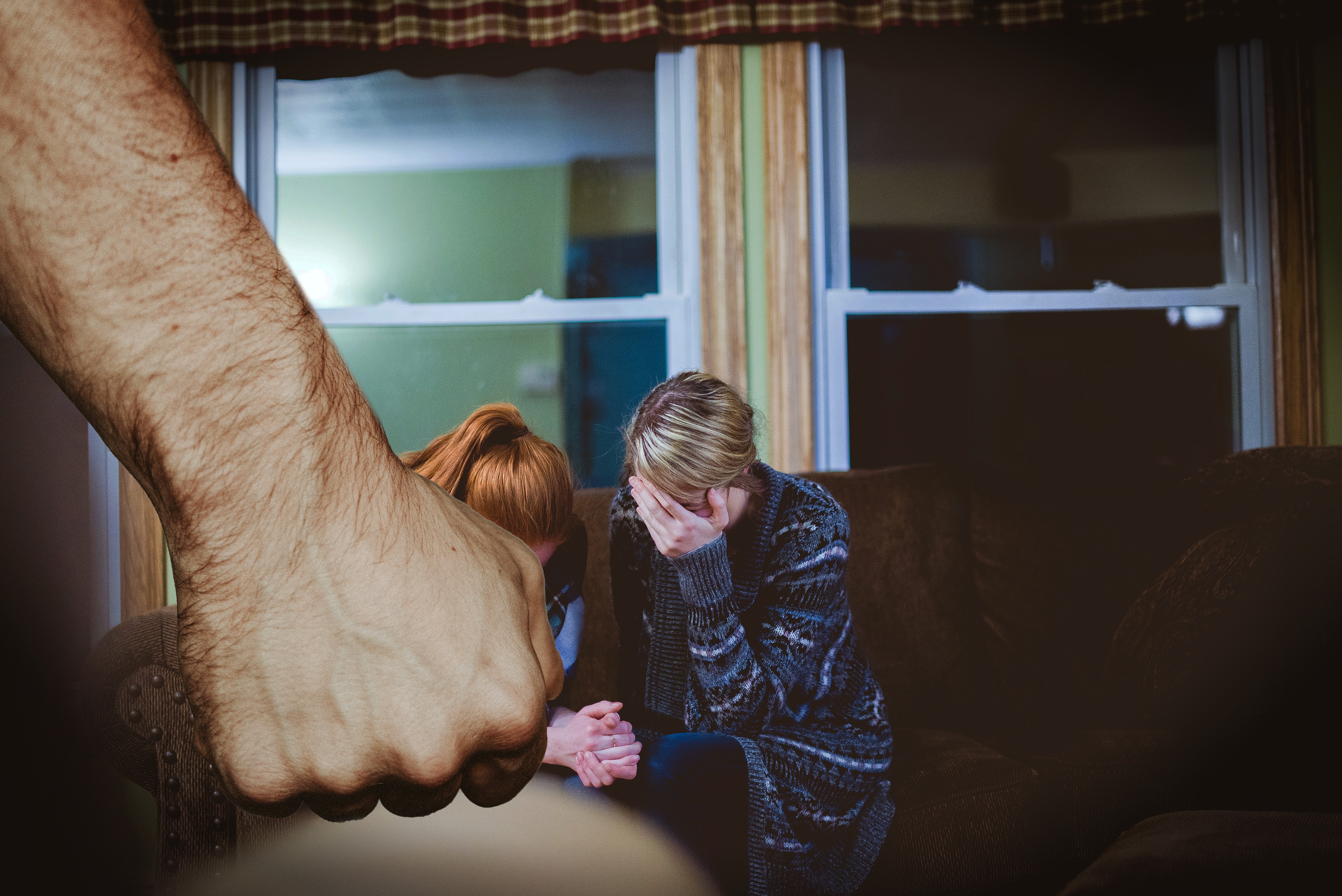
VIOLENCE AGAINST WOMEN: THE OTHER PANDEMIC.
STATEMENT OF THE PRESIDENT OF THE
WORLD UNION OF CATHOLIC WOMEN’S ORGANISATIONS
ON THE INTERNATIONAL DAY FOR THE ELIMINATION OF VIOLENCE AGAINST WOMEN
25 NOVEMBER 2021
What kind of violence against women are we talking about? Psychological, verbal, physical, sexual or symbolic violence? Because all of these, in addition to femicide, are the ones that have increased during the pandemic.
“The testimonies of victims who dare to break their silence are a cry for help that we cannot ignore, we cannot look the other way,” Pope Francis told us on 1 February 2021.
This is one of the reasons why the World Union of Catholic Women's Organisations (WUCWO) has founded the World Observatory on Women on a pilot basis. We have the first results on the impact of the Coronavirus on women in Latin America and the Caribbean.
25 women experts from 14 countries said that the pandemic has aggravated pre-existing structural violence.
The stress, anguish and anxiety of confinement unleashed and exacerbated situations of domestic violence. Churches, during the confinement, were unable to provide spaces for listening and denunciation.
The fact that victims and perpetrators lived in the same space, isolated from the rest, unleashed the other pandemic: violence. Unable to go out, women could not ask for help. The children, unable to go to school, also lost their space for expression and protection.
It is estimated that 70% of femicides occurred in a home shared with the assailant. Some perpetrators were released from prison - due to the risk of contracting the virus - and returned to live with their victims within the four closed walls of the family home.
According to some experts, in certain communities, not only has psychological violence against women increased since the beginning of the pandemic, but the number of pregnancies of girls as young as 10 years old has also increased, due to abuse by family members (fathers, brothers, uncles, aunts or grandparents).
And the pandemic has not stopped trafficking networks; on the contrary, there has been an increase in trafficking, often with police forces favouring it and corrupt state officials. Traffickers and the demanders of services in which women are a commodity have established new strategies for obtaining and “marketing” victims through means such as the Internet and transport networks that take victims to clients and back.
The experts propose, first: creating spaces where women can be heard, places where they feel safe when they want to ask for help and where they are accompanied.
Second: the training of women as a key element for their empowerment, for the transformation of structural, symbolic violence through education that promotes a culture where men and women live in mutual respect and equal application of their rights.
Third: the inclusion of women in public policy decision-making spheres and, from there, the promotion of programmes for the benefit of populations vulnerable to the risk of violence.
This undoubtedly requires co-responsibility on the part of men and women in the eradication of violence against women.
María Lía Zervino, Servidora
WUCWO President
